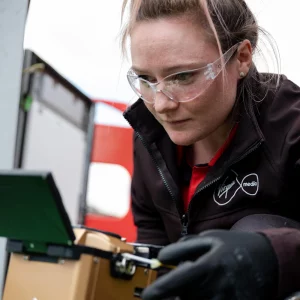Sponsored Links
BDUK Confirms GBP16.8m for Superfast Broadband Project in Rural Cumbria
Posted: 08th Jul, 2011 By: MarkJ
 The UK governments Department for Culture, Media and Sport (DCMS) has confirmed that Cumbria County Council (CCC) will receive £16.8m in funding from the Broadband Delivery UK (BDUK) office to help the county deploy superfast internet access (ISP) services.
The UK governments Department for Culture, Media and Sport (DCMS) has confirmed that Cumbria County Council (CCC) will receive £16.8m in funding from the Broadband Delivery UK (BDUK) office to help the county deploy superfast internet access (ISP) services.The BDUK office, which originally announced lower funding of between £5m to £10m for CCC's project - Accessible Cumbria - in October 2010 (here), wants 90% of "people in each local authority area" to be within reach of a superfast broadband (25Mbps+) service by 2015.
Since then the outspoken Conservative MP for Penrith, Rory Stewart, has been hard at work lobbying for more support and to develop a way forward for the county. The Accessible Cumbria initiative ultimately hopes to make a minimum broadband speed of 10Mbps available to everybody in the area by 2015.
The MP for Penrith, Rory Stewart, told News&Star:
"When I went to see the Secretary of State, Jeremy Hunt, in July last year to ask him for money for a broadband pilot in Cumbria, he told me that we were very unlikely to get any.
But in October, the Chancellor announced that Cumbria would be a fourth national broadband pilot and promised us £5 - 10m. I’ve put in a year of work and more than 100 meetings to secure this money for Cumbria. I’m really delighted that the final sum is even more than we were originally promised."
"When I went to see the Secretary of State, Jeremy Hunt, in July last year to ask him for money for a broadband pilot in Cumbria, he told me that we were very unlikely to get any.
But in October, the Chancellor announced that Cumbria would be a fourth national broadband pilot and promised us £5 - 10m. I’ve put in a year of work and more than 100 meetings to secure this money for Cumbria. I’m really delighted that the final sum is even more than we were originally promised."
Stewart noted that the next stage of his work was likely to start today when he chairs an Industry Day meeting just outside of Penrith. The event will be a chance for ISPs and related groups to meet before thrashing out the best way forward.
Coincidentally ISPreview.co.uk reported this morning that Fibrestream ( NextGenUs ) had announced the creation of NextGenUs Cumbria CIC (NGU Cumbria) and tentative plans to extend its new Cumbrian fibre optic broadband platform "county-wide" (here).
The project, which will initially be supported by private investment of over £1 Million (Phase One), envisages a mixed deployment of 100Mbps+ capable Fibre-to-the-Home ( FTTH ) and wireless (FiWi) broadband technology.
Crucially Fibrestreams project will not make use of any public funding. The two approaches, while duplicating a similar theme, could at least result in more consumer choice. It's also possible that one might simply invalidate parts of the other.
Search ISP News
Search ISP Listings
Search ISP Reviews
Latest UK ISP News








Cheap BIG ISPs for 100Mbps+
150,000+ Customers | View More ISPs
Cheapest ISPs for 100Mbps+
Modest Availability | View More ISPs
Latest UK ISP News
Helpful ISP Guides and Tips
Sponsored Links
The Top 15 Category Tags
- FTTP (6802)
- BT (3881)
- Politics (3075)
- Business (2767)
- Openreach (2663)
- Building Digital UK (2512)
- Mobile Broadband (2475)
- FTTC (2142)
- Statistics (2128)
- 4G (2092)
- Virgin Media (2025)
- Ofcom Regulation (1779)
- 5G (1732)
- Fibre Optic (1604)
- Wireless Internet (1595)
Sponsored
Copyright © 1999 to Present - ISPreview.co.uk - All Rights Reserved - Terms , Privacy and Cookie Policy , Links , Website Rules






























